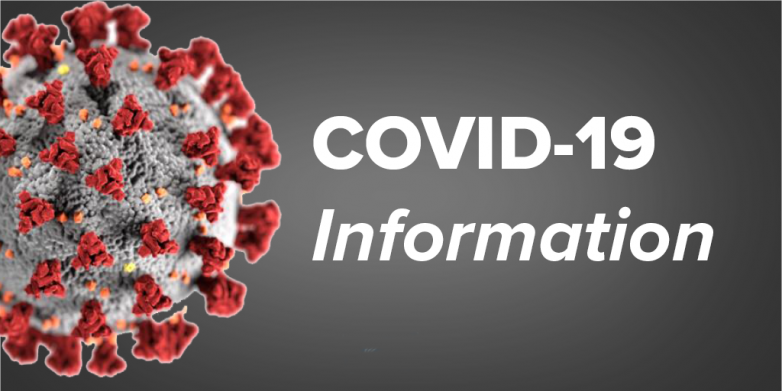By Lynn Bonner
NC POLICY WATCH

This year started with the promise of new COVID-19 vaccines that could push North Carolina and the country beyond the pandemic. It ends with the rise of a new COVID-19 variant that once again has the state and the world on guard.
COVID-19 cases spiked after last year’s Christmas holiday. Infections caused by the delta variant, which spread more easily than earlier ones, led to another surge this summer that filled hospital beds.
The year is ending with public health warnings about a new, more infectious variant called omicron.
Dr. Mandy Cohen, head of the state Department of Health and Human Services said on Dec. 20 that omicron infections could soon push new COVID-19 cases in North Carolina to 10,000 a day, peaks not seen since the worst days of the last winter and summer surges.
Thomas Denny, chief operating officer at the Duke Human Vaccine Institute, said he was disappointed about where the fight against COVID-19 stands nearly two full years into the pandemic.
“Two years ago, I would have said that we would be beyond it by now,” he said told reporters during a webinar this month. “Unfortunately, we’re not. I’m very disappointed at overall society’s reaction to masking and public health policies. I’m very disappointed at the amount of vaccine hesitancy that’s there. I’m just concerned how we find our way out of this.”
COVID-19 vaccines became widely available

North Carolina’s first COVID-19 case was identified in March 2020. The first COVID-19 vaccines were distributed in the state a little more than a year ago, on Dec. 14, 2020. Health care providers at high risk of exposure and staff in long-term care facilities were first in line for shots. They were followed by nursing home residents, people over 65, staff at congregate living settings, and people at high risk of severe illness.
In the early months, demand outstripped supply. People scrambled for vaccine appointments, some traveling far from their home counties for shots.
Eligibility expanded and vaccine supplies increased in late winter. Vaccinations in the state peaked the week of April 4, when 703,438 doses were administered, according to DHHS. Interest dropped from there and hit a low in early July.
North Carolina lagged slightly behind national averages in the percentages of vaccinated residents as of mid-December, according to CDC and DHHS data.

People 5 years old and older can be vaccinated for COVID-19. To help stop the more contagious omicron variant, public health officials are encouraging booster shots for people 16 and older.
Last summer, the state began using money to encourage more people to get shots. It distributed cash cards to people who were vaccinated at certain locations and gave some cards to drivers who offered people lifts to vaccination events.
Gov. Roy Cooper in June announced a vaccine lottery in which four vaccinated adults would win $1 million each, and four vaccinated people ages 12 to 17 would win $125,000 to put toward their post-secondary education. However, a study of state vaccine lotteries found they did not lead to increased vaccination rates, Colorado Newsline reported.
COVID-19 and health equity
Healthier Together, a partnership between DHHS and the NC Counts Coalition, distributed $1 million in two $500,000 chunks to nonprofits for vaccine education and vaccination events in historically marginalized communities, Policy Watch reported.
State officials have prioritized equitable distribution of vaccines. After months where Latino vaccination rates lagged rates for other demographic groups, the vaccination rate for Latino residents who have received at least one dose now exceeds the rate for non-Latino residents, DHHS reports.
Monoclonal antibodies, laboratory-made proteins that mimic those the human body produces, were found to be effective as a COVID-19 treatment for people in danger of severe illness if patients received the treatment within 10 days of showing symptoms. Though state officials began promoting the treatment earlier this year, it was not available in all counties, and information about the therapy was spotty, Policy Watch reported.

In late September, the state’s chief medical officer for the Medicaid program told a group of Latina doctors and health advocates that early data showed a wide disparity between Latino patients’ and non-Latino patients access to the therapy.
Cohen pointed to vaccination progress in the Latino community in a news conference on Dec. 14. But with monoclonal antibodies, “We have a lot of work to do,” she said.
Cohen, the NC DHHS secretary and the face of the public health response to the pandemic, announced in late November she was leaving that job. North Carolina will begin 2022 with one of Cohen’s deputies, Kody Kinsley, running the department.
DHHS launched an Office of Health Equity and named Victor Armstrong as its first chief health equity officer. Armstrong said in a Policy Watch interview that advancing health equity in COVID-19 vaccinations and therapies, and using those strategies to tackle health disparities beyond COVID are department priorities.
Health precautions and politics
Clashes over health precautions between Cooper, a Democrat, and Republicans who control the legislature carried over from 2020 to 2021. In the first year of the pandemic and before vaccines were available, the legislature passed bills that would reopen bars, bowling alleys, amusement parks and other businesses. Cooper vetoed them.
The legislature passed bills last year and this year to limit Cooper’s powers in statewide emergencies. He vetoed those, too. However, a provision of the state budget, which Cooper signed, requires governors declaring long-term states of emergency to obtain agreements from a majority of the Council of State beginning in 2023. The Council of State is a group of statewide elected officials.
The persistence of myths

Some Republican legislators continue to question the value of COVID-19 vaccines. Rep. Mark Brody, a Monroe Republican, said at a Joint Legislative Committee on Governmental Operations meeting this month that he had not taken the vaccine and questioned whether it can alter DNA, Policy Watch reported.
The claim that vaccines can alter DNA has been repeatedly debunked by The Associated Press, Reuters, and hospitals nationwide.
With COVID-19 cases climbing again at year end, Denny said during the webinar that he hopes 2022 marks a permanent pivot to pre-COVID-19 pandemic living.
“What we have to realize this virus is going to become endemic,” he said. “We have to learn how we’re going to deal with it and how we’re going to prevent severe disease. About the only tool we have right now to prevent severe disease is the vaccines that we now have.
“Hopefully we will get another generation of vaccines, whether it be ‘22 or ‘23 that will prevent transmission of the virus or not require us to not have so frequent of a boosting. Until then, I think we’re going to have to remain on guard and utilize good sensible public health prevention technique to help get us through the transition.”


